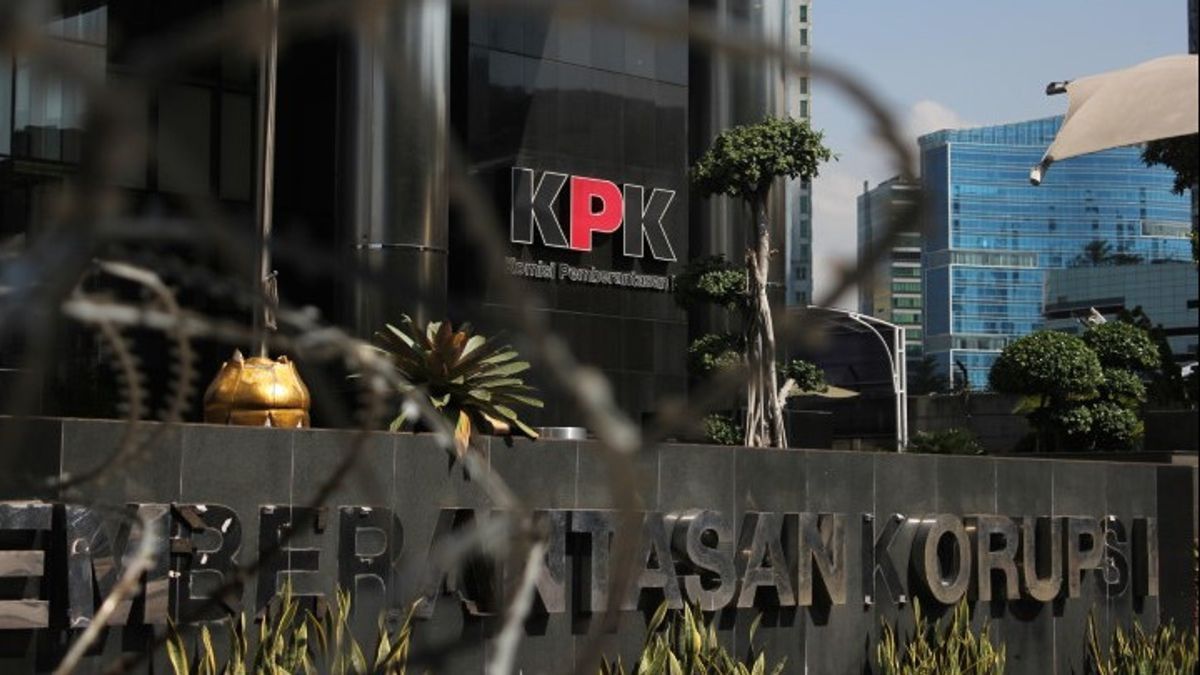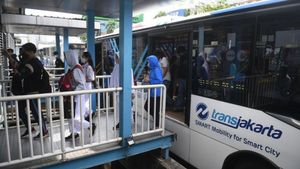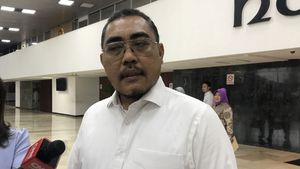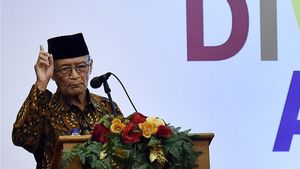JAKARTA - Deputy Chairman of the Corruption Eradication Commission (KPK), Nurul Ghufron, said that disasters that occur in the country often become a plague of corruption committed by certain individuals.
"This is not only in 2020. In many cases, some disasters turn out to lead to corruption," said Ghufron during the launch of the 2020 Corruption Perceptions Index which was broadcast on Transparency Indonesia International's Facebook account, Thursday, January 28.
According to him, if a disaster should be able to increase solidarity and togetherness. However, in Indonesia this is actually used as an opportunity to make profit for certain individuals and groups of people.
"But in fact, it seems as if the disaster has become a problem," he said.
Furthermore, Ghufron also alluded to the COVID-19 pandemic that the government has designated as a non-natural disaster. He suspects that Indonesia's condition, which is currently struggling with the spread of COVID-19, is one of the reasons for the decline in the corruption perception index.
Because, he considered that there were people who were trying to take advantage of the leniency of regulations from the government, especially in the process of procuring goods and services for handling COVID-19.
"There should be strict provisions for the procurement of goods and services. But for the sake of humanity, for the sake of health, then the tightening is relaxed because we need speed to save the nation,"
"But the fact is that the concession is always used as an opportunity to later commit corruption," added Ghufron.
Reflecting on this fact, he reminded and invited all elements of the nation to work together to eradicate corruption. Moreover, eradicating corruption is not only the responsibility of the KPK but is the responsibility of all parties.
"The KPK hopes that all parties, not only NGOs but also all stakeholders, including the central government, regional governments in the political and economic fields, will work together to try. Prevention is better so that there is no corruption," he said.
He said corruption was not a burden on the KPK or other law enforcement agencies but a collective burden. This means that it is borne by all Indonesian people.
Ghufron said that corrupt behavior has taken away two public rights, first, the right to access public finances. This is related to the effective and efficient use of public money that has been collected by the government.
"That then actually represents the legal interests of articles 2 and 3," he said.
He continued, while the aspects of article 5 related to bribery, extortion, and gratuity considered that corruption injures the rights of the interests of socio-political rights. How people get public services can be fair or not.
"Is then getting access to government is fair or not, is there a privilege due to bribery or not," he said.
He emphasized that corruption represents a behavior that burdens and destroys not only the KPK but all elements of the nation. He said the KPK hoped that all people would work in their respective sectors to eradicate corruption from an economic, law enforcement perspective, as well as a political and democratic system.
"The KPK also hopes that all parties, not only NGOs but also all stakeholders of the central and regional governments in the economic and political fields, will work together to try to prevent and prevent corruption," he said.
It is known, Transparency International Indonesia (TII) has released a Corruption Perception Index (CPI). Based on their research, Indonesia experienced a drop in score of up to 3 points compared to 2019 and lost to Malaysia and Timor Leste.
In 2020, Indonesia will score a perception index score of 37 points. Meanwhile in 2019, the perception index score amounted to 40 points.
In this study, there were a number of data sources that caused the decline in the corruption perception index number in Indonesia in 2020 compared to 2019.
First, the International Country Risk Guide decreased by 8 points from 58 to 50. Then, the IMD World Competitiveness Yearbook Indonesia also decreased by 5 points from 48 to 43. Furthermore, Global Insight Country Risk Ratings fell from 47 to 35; Varieties of Democracy Projects decreased from 26 to 28; and the PERC Asia Risk Guide fell from 32 to 35.
There is also a stagnation in the World Economic Forum EOS which is at 46; Bartelsmann Foundation Transform Index at 37; and the Economist Intelligence Unit Country Ratings which is also at 37. Meanwhile, the World Justice Project has increased 2 points from 21 to 23.
The English, Chinese, Japanese, Arabic, and French versions are automatically generated by the AI. So there may still be inaccuracies in translating, please always see Indonesian as our main language. (system supported by DigitalSiber.id)













